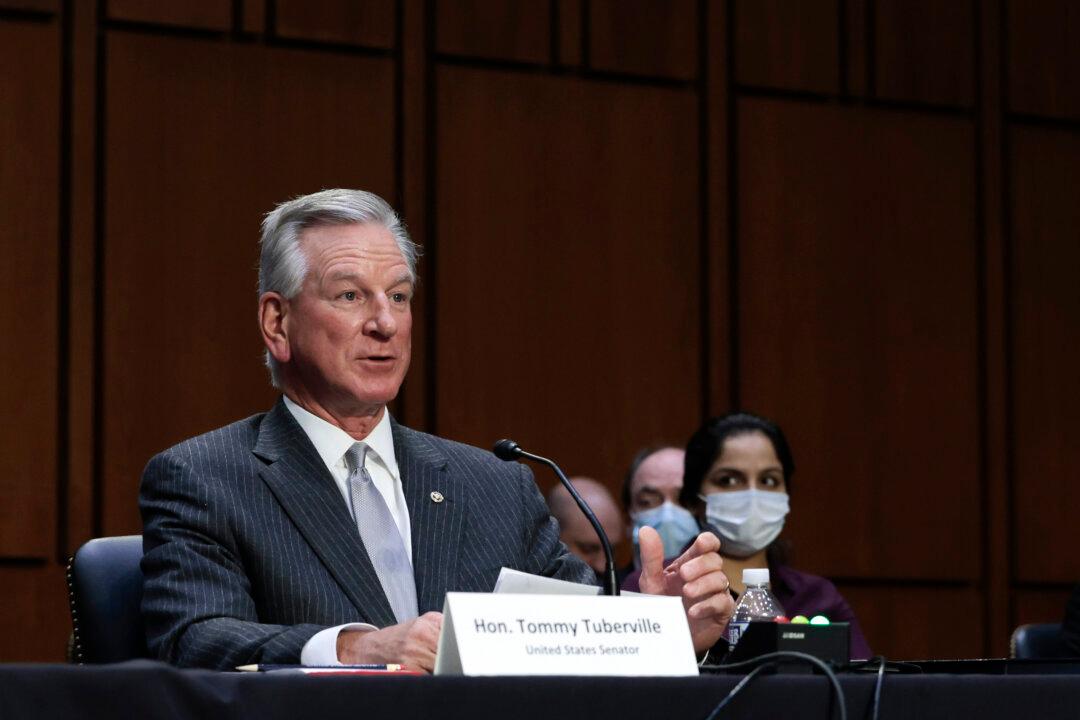Democrats on the Senate Rules Committee, led by Chair Amy Klobuchar of Minnesota, adopted a procedural change during a Nov. 14 business meeting designed to enable senators to circumvent a hold placed nine months ago by Sen. Tommy Tuberville (R-Ala.) on hundreds of President Joe Biden’s military and civilian employees in the Department of Defense (DOD).
The nine Democratic members of the committee approved the proposed change sought by Senate Armed Services Committee Chairman Jack Reed (D-R.I.), while the rules panel’s eight Republican members opposed it.





